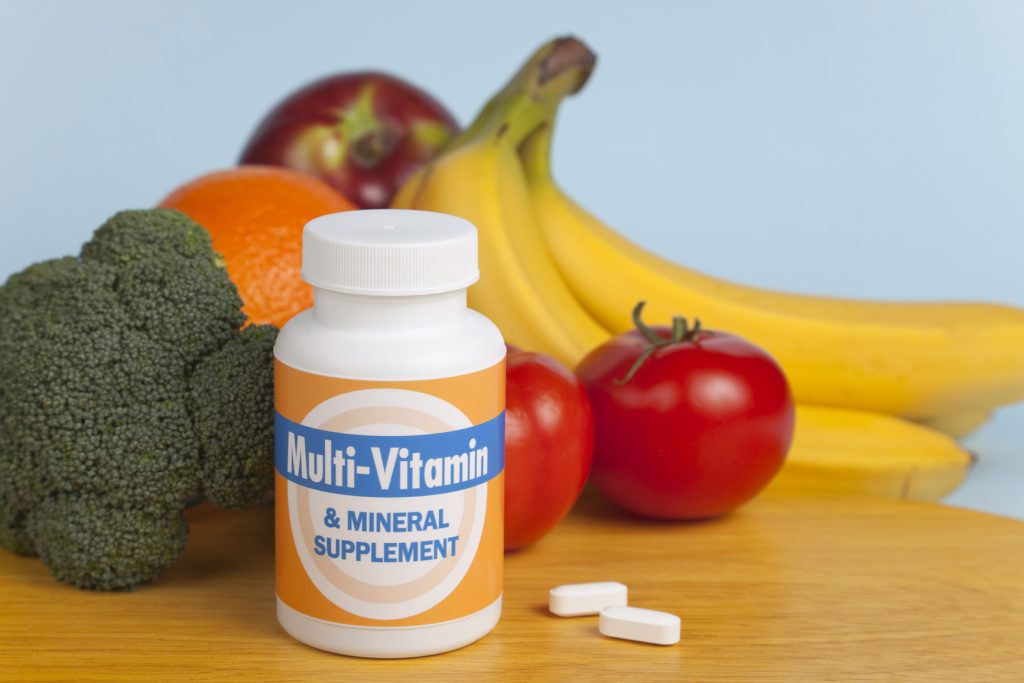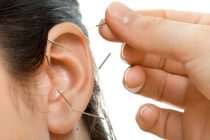Our bodies need a variety of vitamins and minerals to work properly and stay healthy. These nutrients help turn food into fuel, fortify bones, tissues and eyesight, produce skin, and enable the body to carry out hundreds of other vital functions.
Most of our nourishment comes from eating a balanced diet, but there are occasions when we need to take extra vitamin and mineral supplements to maintain a healthy level. Easily accessible over-the-counter supplements make us prone to self-medicate, but without the right supervision, we could be doing ourselves more harm than good.
Informed by scientific research, the Department of Health put together the Recommended Dietary Allowances (RDAs), which tell us the daily intake of each vitamin and mineral a person needs to stay strong and avoid deficiencies. You can find the RDA guidelines online on the NHS and other good healthcare websites, or ask your local pharmacy.
The amount varies according to our age, size and gender. Women who are pregnant or breastfeeding, athletes, young people, those suffering from a chronic illness, or who are aged over 60 often need additional vitamins and minerals. However, too many nutrients can be toxic to the body, so it’s good to check the government guidelines for the ‘Safe Upper Levels for Vitamins and Minerals’.
“Over-the-counter supplements make us prone to self-medicate, but without the right supervision, we could be doing ourselves more harm than good”
Vitamins are organic and plant-based, which means they can be broken down by heat, air, or acid, making them more fragile. Their effectiveness can be impaired through cooking, storage, and even simple exposure to air. Minerals however, are inorganic: they originate from the earth, but cannot be made by living organisms, so their chemical structure remains intact when they enter our bodies through the plants, fish, animals, and fluids we consume.
We need to feed the body 13 essential vitamins to ensure normal cell function, growth, and development. These help with the release of energy and keep tissues healthy. They maintain our eyes, skin, lungs, gastrointestinal tract, and nervous system in good repair, and also prevent a host of diseases, such as scurvy, blindness and rickets.
There are two types of vitamins, fat-soluble and water-soluble. Fat-soluble vitamins (A, D, E, and K) are absorbed via fat in our diets, enabling them to be stored for later use. Those on a low-fat diet, trying to lose weight or with renal disease and kidney impairments can easily become deficient, but over-consumption could result in toxic levels. Water-soluble vitamins include biotin (B7), vitamin C, niacin (B3), folic acid (B9), and pantothenic acid (B5). The body can’t store these types of vitamins and flushes them out daily, so water-soluble vitamins must be replenished more frequently. The body can also tolerate higher doses of them.
“The body can’t store water-soluble vitamins and flushes them out daily, so these must be replenished more frequently”
Minerals are split into two groups: macrominerals and trace minerals. As their names suggest, the body needs large doses of the first type, but only tiny amounts of the latter. The human body contains several important minerals: calcium, magnesium, phosphorus, potassium, sodium and sulphur. One of their major tasks is to maintain the proper balance of water and other chemical elements in the body; another is to keep bones healthy, while sulphur helps to stabilize protein structures which form, amongst other things, hair, skin, and nails. Too much of one mineral can create imbalances elsewhere. Magnesium, for example, is important for nerve function, muscles and energy, but excessive amounts can have an adverse impact on the body including the heart.
The quantities needed are minute, but trace minerals such as copper, fluoride, iodine, iron, manganese, and zinc also play a vital role in the body. For example, iron carries oxygen throughout the body, fluoride strengthens bones and wards off tooth decay, zinc helps blood clot and bolsters the immune system, while copper forms enzymes that assist with iron metabolism and the creation of haemoglobin, which carries oxygen in the blood.
 Before you start adding supplements to your daily intake of nutrients, review your diet and lifestyle. Are you consuming a range of fruit, vegetables, nuts, pulses, fish and dairy that could naturally feed your body with essential vitamins and minerals? Are you getting enough rest? If not, it’s always better to make changes here first. If you still need a boost, talk to your local pharmacist or GP who can guide you on what adjustments to make to improve your health without creating new problems.
Before you start adding supplements to your daily intake of nutrients, review your diet and lifestyle. Are you consuming a range of fruit, vegetables, nuts, pulses, fish and dairy that could naturally feed your body with essential vitamins and minerals? Are you getting enough rest? If not, it’s always better to make changes here first. If you still need a boost, talk to your local pharmacist or GP who can guide you on what adjustments to make to improve your health without creating new problems.
About the author:Feriha İbrahim is a fully-qualified pharmacist who, together with her family, runs Woodside Pharmacy – both branches are located in Leytonstone, London E11.
Main photo: Generic multi-vitamin bottle containing tablets of vitamins & minerals derived from the surrounding fruit & vegetables. Photo © iStock/Denise Bush




